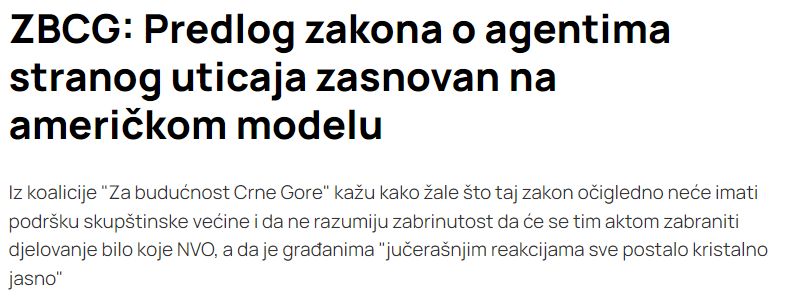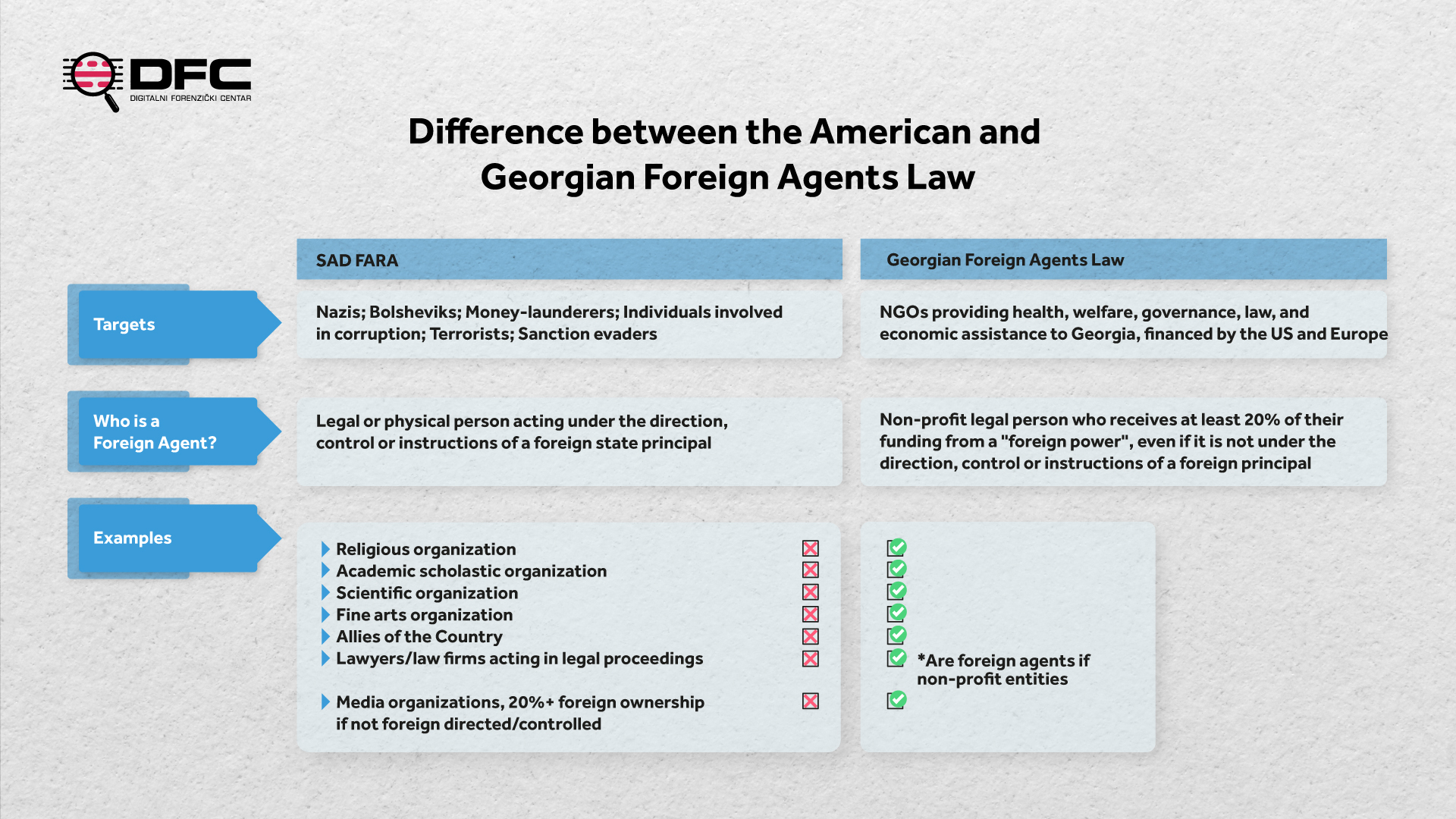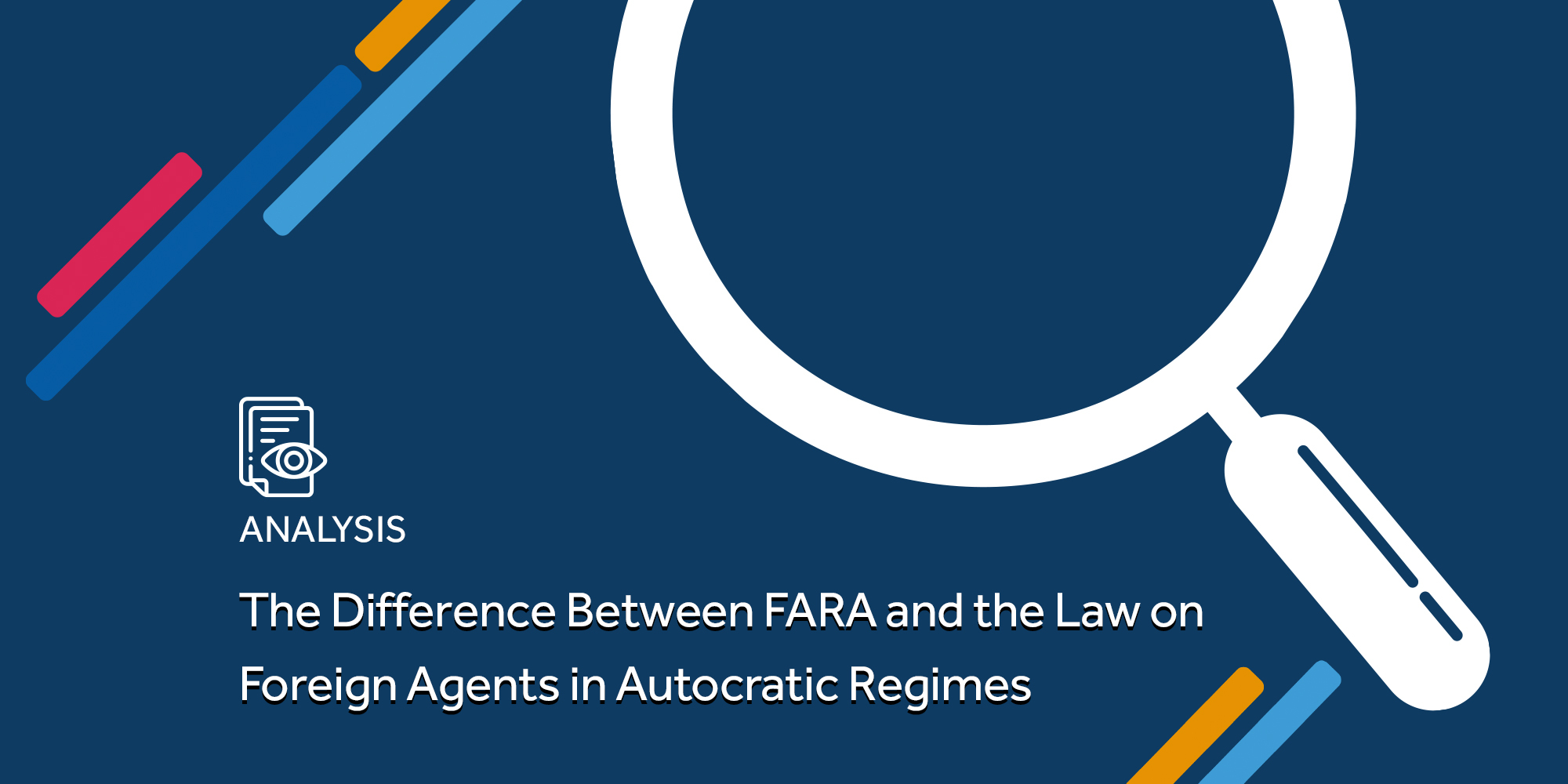The reference made by the coalition For the Future of Montenegro (FTFOM) to the American Foreign Agents Registration Act (FARA) is already an established disinformation tactic of pro-Russian proxies across Europe. They use the existence of this Law to realize an agenda in their countries that contradicts democratic values, and carry out totalitarian tendencies, suppressing the freedom of civil society and limiting the activities of independent media and non-governmental organizations.

After the adoption of the Law on Foreign Agents in Georgia, its proponents attempted to relativize its discriminatory and anti-European provisions by comparing it to the American Foreign Agents Registration Act (FARA). Essentially, the Law on Foreign Influence Agents, propagated by pro-Russian and pro-Serbian proxy actors, defines the term agent differently from the American FARA law. The FARA law was created in 1938 with the aim of curbing Nazi, and later Bolshevik, propaganda. Amendments to that law were specifically created to target money laundering, corruption, terrorism, and the evasion of sanctions. This Law does not require civil society organizations to register solely based on foreign financing. Additionally, it does not censor or punish those who disagree with the policies or practices of the U.S. government, whether they are non-governmental organizations or foreign governments. It does not limit lobbying or advocacy in the United States, nor does it prevent non-governmental organizations from receiving foreign funding. It does not impose impractical burdens or draconian penalties on these organizations, nor do the United States require invasive and excessively detailed information about all employees working for organizations subject to the American FARA law.
The Law tailored by Russian-Serbian proxies, as seen in Georgia, targets the NGO sector and non-profit organizations that have worked over the past two decades to improve all segments of society, from human rights protection to combating corruption and foreign malign influence. The goal of authoritarian regimes is to use this legal solution to further capture society and silence all dissonant tones.

It is important to note that Montenegro already has a Law on Non-Governmental Organizations, which obliges both domestic and foreign NGOs to register and provides a legal framework for NGO operations in our country. However, pro-Russian and pro-Serbian political and media proxies often target the civil sector in Montenegro to create an atmosphere of fear and insecurity. The FTFOM initiative is the next step in their effort to silence critics of the government.
The DFC has published a detailed analysis that examines the essence, application, and consequences of foreign agent laws in Russia, Belarus, Georgia, Hungary, and Slovakia. We highlighted the rulings of the European Court of Human Rights as well as the EU’s reaction to these anti-democratic legal solutions. You can read the full analysis here: https://dfc.me/ugrozavanje-evropske-buducnosti-crne-gore-sta-predstavlja-zakon-o-stranim-agentima/

